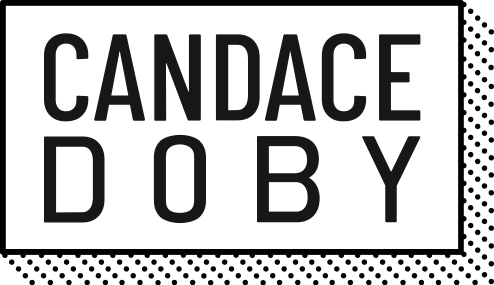The cat’s out of the bag.
Employees are not working …
… to their full potential.
They’re not challenging half-baked ideas that they know won’t deliver anticipated results. They’re not raising concerns about gender or racial exclusion in the newest campaign. And, they’re not asking for help, giving critical feedback or raising their hand to take the lead. What’s clear is that their professional growth and development isn’t the only thing taking a hit … so is the company’s bottom line.
Recent headlines from the pandemic suggest “Quiet Quitting” — the act of performing bare necessities of a job — may be to blame for the display of mediocrity more noticeably seen and felt across many organizations. According to Gallop, “Quiet Quitters” make up 50% of the U.S. workforce. They are psychologically disconnected and disengaged from their job. Among the reasons why include a lack of clarity in expectations and a disconnection to the organization’s mission. My work as a leadership development advisor and courage coach leads me to believe that some professionals, at least, are not performing to their potential because they find it too risky to do so.
How do I know? I asked them.
“What courageous action do you want to take right now at work that seems too risky or challenging to pursue?”
Over 360 professionals from a range of industries — from finance to real estate to youth development to science — revealed through an open-ended survey exactly which risks they want to take in the workplace. Their answers were collected over a span of three years — during and outside of the pandemic. I uncovered four common actions professionals want to conjure their courage for. I also uncovered critical reasons why they don’t engage. This is the first installment of a three-part series that illuminates what risks employees want to take, what stops them from taking them and what they can do to move forward to courageously step into their potential.
Courageous action #1: Speak up
More than anything, professionals want to activate personal courage to speak up in the workplace. About 38.5% of survey respondents answered like this, and they revealed four specific ways they want to elevate their voices.
Express Divergent Ideas:
Respondents uncovered their desire to disagree. They wanted to “speak up with an opinion different than the norm.” They also wanted to suggest new ideas and raise objections; though, they found themselves quiet and seemingly agreeable. When one person in an organization censors themself, their decision to do so can be inconsequential to the enterprise. When potentially half of an organization’s workforce remains silent and agreeable, however, the organization loses opportunities capitalize on divergent thinking, explore unique solutions and innovate faster — all of which impact the bottom line.
Ask:
Professionals who responded to the survey had several questions they wanted to direct to colleagues and supervisors, yet they decided their inquiries were too risky to utter. Respondents revealed that they wanted to ask for more: money (for themselves and their programs), training, reviews, referrals, mentorship, time off, career development plans, behavior change and responsibility. One respondent explicitly noted that they wanted to ask for “equal responsibility as opposed to me handling everything and the ‘dirty’ job.” Similarly, another said they wanted to ask for “more responsibility in an area outside my department.”
Give Feedback:
Some respondents wanted to speak up to give critical feedback — an action that often creates possibility for individuals, teams and organization to perform better. They expressed an eagerness to “verbalize that the workload is overwhelming,” address their colleague’s “subtle offensive behavior” and discuss concerns openly with their direct reports. Withholding feedback, especially the critical kind, denies professionals (and thereby their organizations) opportunities to improve, which can translate to a sucker punch to the bottom line.
Advocate for others:
Individuals responding to the survey also revealed that, in addition to speaking up to advocate for themselves, they wanted to raise their voices in support of colleagues. One manager stated they wanted to “advocate for raises for my team” while another person stated more broadly they wanted to “speak up when help is needed.”
Courageous action #2: Be seen
Many respondents expressed their desire to courageously be seen — 14.1% of them. For some, that meant getting on social media to bring additional awareness to their work or stepping onto conference stages to share their interests and expertise. For others, it meant being seen — acknowledged and recognized — by supervisors or getting visible to help promote themselves for a higher level position. When professionals fly under the radar, by choice or circumstance, they aren’t creating opportunities for colleagues to learn from and leverage their brilliance. And, a smaller pool of brilliance to tap into can mean there’s less room for an organization to explore and discover.
Courageous action #3: Step into potential
A group of professionals (13.3%) didn’t name specific courageous actions they wanted to take in the workplace. Instead they more broadly expressed a desire to powerfully step into their potential by overcoming limiting beliefs, creating and implementing personal routines, finding confidence in their own knowledge and being more comfortable with being uncomfortable. One respondent shared that they wanted to “stop making themselves feel smaller to make others feel more comfortable,” while another shared they wanted to “overcome male domination in the workforce.” An organization filled with employees who don’t take (or are not supported in taking) steps to unlock and develop the skills, talents, and passions within them, is vulnerable to missing goals and objectives.
Courageous action #4: Explore new territory
Close to 13% (12.7%) of respondents made clear their desire to take courageous action outside the confines of familiar territory — from taking on other roles within their company to taking on new markets. For some professionals surveyed, exploring new territory also meant quitting. Several respondents revealed that they wanted to “take a break”, “leave for bigger opportunities,” retire, move to different countries and start their own businesses. What can happen when an organization is packed with professionals who don’t believe they can (or don’t ask to) cross-train, explore new areas within the business or leverage their skills for different work applications … especially when exploring new territory is something they urgently want to do? They may become disengaged, an outcome which negatives impacts the bottom line.
The top four categories make up 78.6% of respondents. The next four categories (we’ll call ‘honorable mentions’) show how nearly 17% more respondents weighed in.
Courageous Action #5: Disrupt the status quo
The word most often used in this category is “change.” Professionals surveyed (6.6%) wanted to change how things are done at work. They wanted to reinvent their departments, revamp training processes and make “transformative changes to traditional programming.” Some respondents directly called out changing the culture at work, with one respondent specifically saying they wanted to “challenge the status quo of having an overworked culture.”
Courageous action #6: Lead
Some professionals taking the survey (6.1%) expressed an urgent desire to lead — to take a lead role on a major project, “become a manager,” run for president of their organization, “begin an executive leadership rotation” and run a new program. When professionals are unable to raise their hand to take the lead, those professionals (and the organizations they work for) may struggle to progress and position themselves for success in the future.
Courageous action #7: Say no
While “Saying No” could have folded under an earlier category of “Speaking Up,” it is receiving its own category. Some professionals (2.2%) specifically expressed that they wanted the courage to say no in the workplace — including pushing against conventional wisdom for how they should work, “declining clients” who weren’t a good fit and enforcing other boundaries. When employees are unable to ‘say no’, they may become overwhelmed at work, which can lead to burnout, decreased productivity, turn-over and a toxic culture. All of these potential negative outcomes act as uppercuts to the bottom line.
Courageous action #8: Form deeper connections
About 2% of respondents uncovered that they wanted to courageously form deeper connections with others. For some respondents this meant entering the risky territory of being vulnerable. For others this meant listening better, “meeting people where they are,” practicing empathy and building stronger relationships with business partners.
Why are these courageous actions so hard to take?
There are several reasons why these action may be difficult for professionals to engage in. We’ll dive into them in part two of this series.
Limitations of research
Respondents to the survey include audience members of keynote speeches and workshops I delivered. Respondents had the ability to self-select or opt-in to the survey. The sample size is small (361 participants) and thereby may not be representative of the entire working population. The industries included in the research are limited to those represented by professionals taking the survey.







